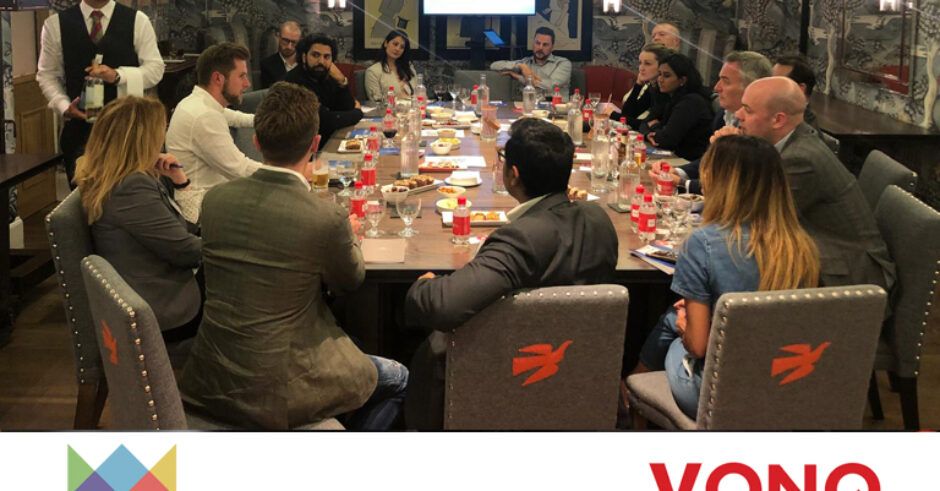The Business Transformation Network recently hosted an event on ‘Strategic Talent Acquisition in the Digital Age: An HRD’s Perspective’ in partnership with VONQ. VONQ offers smart recruitment marketing solutions to help recruiters target the right talent.
The conversation was varied, touching on a wide variety of points around the following questions:
- What is strategic Talent Acquisition in a digital age and how is it different?
- How are advancements in technology (Eg. Performance Recruitment Marketing and AI) changing talent acquisition?
- Where are we going to be in 10 years?
We are in a global age of information, but how does this affect our trajectory as organisations and the way we hire individuals… With Gartner reporting that “46% of new hires from the last 12 months said they wouldn’t make the same decision again”, where did organisations go wrong?
What is Strategic Talent Acquisition in a digital age and how is it different?
Amongst attendees, there was a discussion about what constitutes ‘Strategic Talent Acquisition’ with the majority agreeing that this requires using the data that is collected through the internet and various other digital means to understand what candidates value and how best organisations can adhere to these expectations. Following this, the conversation around the room turned to a wider exploration of what candidates valued and how organisations can embrace it whilst remaining authentic, which led to a variety of streams of discussion. Despite the difference between the organisations in the room, there were some main themes that seemed to flow throughout the points discussed when looking at candidate expectation and values, the main focus being the importance of still providing a ‘human touch’ and not over-emphasising the role of digital and technology during the hiring process, but using them to help in the initial stages instead.
However, talent acquisition (TA) isn’t all positive, it has some challenges too. The main challenge faced by TA is how organisations can assess and understand cultural fit as well and understanding the motivation of candidates reason for joining a company (do they actually want to work there or are they desperate?), however the group highlighted that this is where predictive analytics come into their own, to help organisations make an informed decision.
How are advancements in technology (Eg. Performance Recruitment Marketing and AI) changing talent acquisition?
Despite the advancement of technology, organisations aren’t quite embracing it to their benefit yet. Digital tools such as AI and performance analysis can make an enormous impact on how strategic TA can be streamlined, but not overloaded and compromised. Performance marketing and Recruitment marketing can play a large part in this, with the importance of analytics as a means of theming your organisational talent acquisition process to appeal to the right people.
Where are we going to be in 10 years?
As the conversation was coming to a close, the discussion turned towards the future and how organisations can predict what could happen. It was widely agreed that no matter the stability of your organisation and strategy, in the current environment it is hard to predict what might happen over the next two quarters, let alone the next 10 years. The challenge to remain competitive tomorrow is just as prevalent in the mind of an HR professional, as staying on top of trends for the next 10 years. Ensuring the organisation is agile enough to adapt to trends is where success develops. Although digital and technology are changing the general way in which organisations work, the universal feeling was that recruitment wouldn’t change too drastically and HR seems to be heading back to the basics of focusing on the people and human aspects of the business.
Throughout the event, there were numerous relevant case studies provided by VONQ. VONQ would like to draw specific attention to a case study that they believed to be incredibly relevant at the moment, their work with Redington:
Redington combined recruitment marketing with the human touch of meet-up events based on their mission statement to build an engaged community, which resulted in successfully hiring a whole tech team for their new location, in Bristol, without using agencies or job boards. If you want to learn about this case, here is a link to the video case study, or you can review the written version here.
In short, the most drastic change for organisations strategic talent acquisition in today’s digital age is that we will need to reinstate the human touch of recruitment, which should follow the initial digital process, embracing analytics to help organisations make informed decisions.
Keep your eye out for more events like this at www.thebtn.tv/events
This event write-up is exclusive to The Business Transformation Network.




